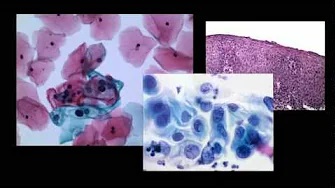Document Type
Article
Publication Date
4-24-2023
Abstract
UNLABELLED: Human papillomaviruses (HPVs) are a significant public health concern due to their widespread transmission, morbidity, and oncogenic potential. Despite efficacious vaccines, millions of unvaccinated individuals and those with existing infections will develop HPV-related diseases for the next two decades. The continuing burden of HPV-related diseases is exacerbated by the lack of effective therapies or cures for most infections, highlighting the need to identify and develop antivirals. The experimental murine papillomavirus type 1 (MmuPV1) model provides opportunities to study papillomavirus pathogenesis in cutaneous epithelium, the oral cavity, and the anogenital tract. However, to date the MmuPV1 infection model has not been used to demonstrate the effectiveness of potential antivirals. We previously reported that inhibitors of cellular MEK/ERK signaling suppress oncogenic HPV early gene expression
SIGNIFICANCE STATEMENT: Persistent human papillomavirus (HPV) infections cause significant morbidity and oncogenic HPV infections can progress to anogenital and oropharyngeal cancers. Despite the availability of effective prophylactic HPV vaccines, millions of unvaccinated individuals, and those currently infected will develop HPV-related diseases over the next two decades and beyond. Thus, it remains critical to identify effective antivirals against papillomaviruses. Using a mouse papillomavirus model of HPV infection, this study reveals that cellular MEK1/2 signaling supports viral tumorigenesis. The MEK1/2 inhibitor, trametinib, demonstrates potent antiviral activities and promotes tumor regression. This work provides insight into the conserved regulation of papillomavirus gene expression by MEK1/2 signaling and reveals this cellular pathway as a promising therapeutic target for the treatment of papillomavirus diseases.
Recommended Citation
Luna AJ, Young JM, Sterk RT, Bondu V, Schultz FA, Kusewitt DF, Kang H, Ozbun MA. Inhibition of Cellular MEK/ERK Signaling Suppresses Murine Papillomavirus Type 1 Replicative Activities and Promotes Tumor Regression. bioRxiv [Preprint]. 2023 Apr 24:2023.03.14.532042. doi: 10.1101/2023.03.14.532042. Update in: Antiviral Res. 2023 Aug;216:105667. PMID: 36993217; PMCID: PMC10054951.

